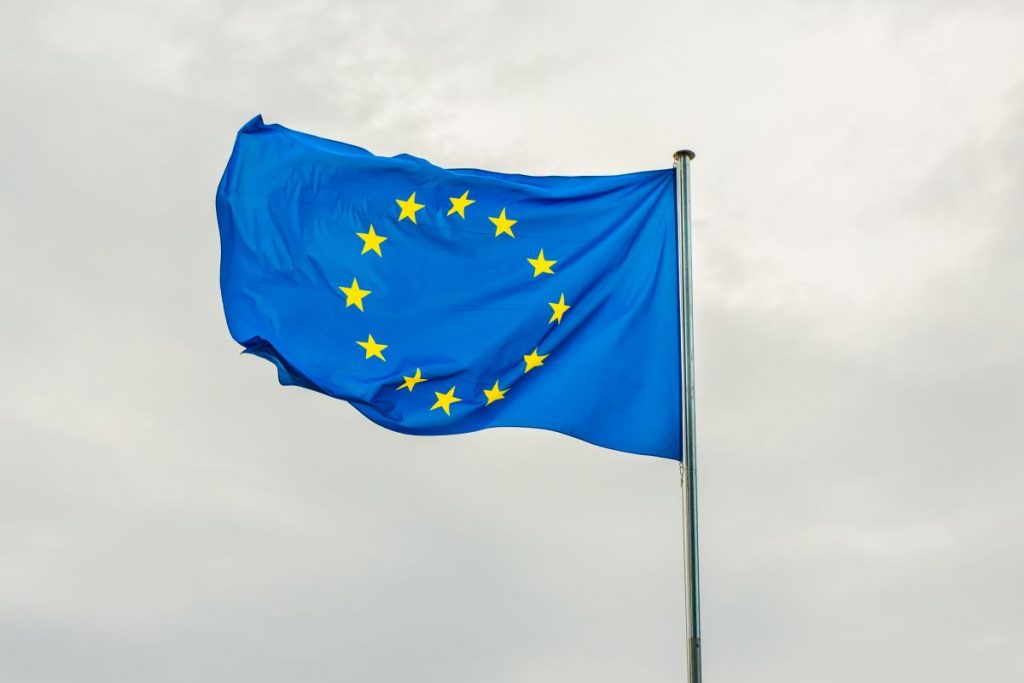By March, EU policymakers are working towards a unified agreement on AI regulations that specifically tackle the challenges posed by tools like ChatGPT.
In Brief
Lawmakers in the EU have set their sights on finalizing their draft regulations concerning AI by the start of next month.
They plan to engage with EU nations to establish a working framework by year-end.
These forthcoming regulations aim to alleviate rising concerns linked to the deployment of AI applications like ChatGPT.

Legislators in the European Union are optimistic about reaching an agreement on the draft regulations governing artificial intelligence (AI) by March, as reported. Reuters One of the EU legislators involved in the drafting process expressed their hope to collaborate with member states by year’s end to enable the implementation of these new AI regulations.
With the United States and China taking the lead in AI applications, from chatbots to self-driving vehicles, the EU is poised to spearhead global regulatory efforts, establishing a pioneering framework for AI governance. However, deliberations surrounding the proposed AI legislation have become increasingly contentious, with various experts warning of potential roadblocks, as highlighted by Reuters.
Initially proposed by the European Commission in 2021, the AI regulations have faced criticism from both lawmakers and the public for not sufficiently addressing the inherent risks associated with AI technologies. Detractors have raised concerns that the added compliance burdens could stifle innovation.
Dragos Tudorache, a European Parliament member and co-rapporteur for the EU’s AI Act, voiced his concerns: \"If the effects of this Act result in a lack of innovation, then we have fundamentally failed in our mission, and that's something we must avoid at all costs.\"
In response to the EU’s AI regulations, several organizations have put forth their own suggestions. A notable example is the Future of Life Institute, a nonprofit committed to minimizing global existential risks, particularly those associated with advanced AI. AI act Founded by prominent figures including MIT cosmologist Max Tegmark and Skype co-founder Jaan Tallinn, with advisors like Elon Musk, the Future of Life Institute highlights potential flaws within the EU’s proposed legislation, stating that it lacks adequate mechanisms to classify a risky AI application used in unforeseen ways as 'high risk.' There’s also ongoing debate regarding the definition of 'General Purpose AI.' While some experts argue it should be classified as 'high risk,' others disagree. Nevertheless, Thierry Breton, the European Internal Market Commissioner, has assured that the new regulations will actively seek to mitigate concerns regarding AI tools like ChatGPT. .
Released in November last year, ChatGPT, developed by Microsoft-backed OpenAI, delivers responses that closely resemble human conversation. It can generate essays, programming code, scripts, and more upon request. However, its potential to facilitate academic dishonesty has raised significant alarms among educators.
Surging to over 100,000 active users within January—just two months after its introduction—ChatGPT achieved this milestone significantly faster than Tiktok, which took nine months, and Instagram, which took two years. risks of ChatGPT Please remember that the information offered here should not be taken as legal, financial, investment, or any form of advice. It’s crucial to only invest what you can afford to lose and to seek guidance from a qualified financial advisor when in doubt. For further insights, we recommend looking at the terms and conditions or the support resources provided by the issuer or advertiser. MetaversePost strives to deliver accurate and impartial reporting, but keep in mind that market conditions may shift unexpectedly.
Cindy works as a journalist for Metaverse Post, focusing on developments in web3, NFTs, the metaverse, and AI. She emphasizes interviewing key figures from the Web3 sector, having already conversed with over 30 executives to share their insights with the audience. Originally hailing from Singapore, she currently resides in Tbilisi, Georgia, and holds a Bachelor’s degree in Communications & Media Studies from the University of South Australia, bringing a wealth of experience in journalism spanning over a decade. With press pitches, news announcements, and opportunities for interviews. Cryptocurrencylistings.com has rolled out CandyDrop, a new feature designed to simplify the purchasing process for cryptocurrencies and boost user engagement through quality project offerings.
The service reached a milestone For DeFAI to realize its potential, it must address the complexities of cross-chain technology.
Disclaimer
In line with the Trust Project guidelines dRPC has launched the NodeHaus platform, which is intended to assist Web3 initiatives in improving their access to blockchain technology.







